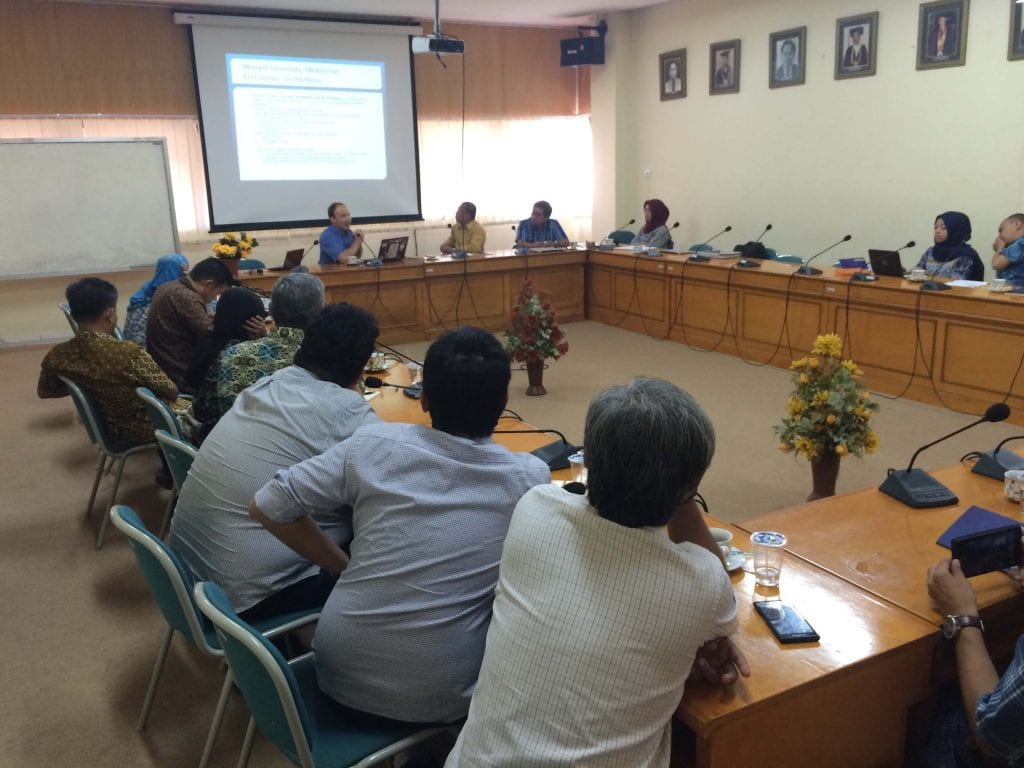Program on European Studies organized a “Workshop on European Studies” with two different themes in each session. The first session is “European Studies Curriculum Development” and the second session is “Workshop on EU Politics and Governance Publication”.
The first session is “European Studies Curriculum Development” which focuses more on sharing curriculum and teaching experiences between Indonesian higher education teaching staff who has interest on European Studies, either those who already has a European-topic classes, or those who doesn’t has class at all. It was attended by 19 participants from various universities in Indonesia, mainly from Yogyakarta and Central Java region.
In this session, Dr. Manuel Schmitz also shares the current situation of European Studies teaching in his university. While in Leuven they emphasize more on the politics and governance aspects, the participants mostly discuss Europe through cultural-integration issue (especially those from the Universitas Islam Negeri Sunan Kalijaga which focuses on Muslim integration), and some uses Europe as a comparison to ASEAN in terms of regionalization/regionalism. In other part of discussion, the participants were introduced to the Indonesian Community for European Studies and given the opportunity to share ideas on the community’s next year agendas. Most of the discussed topics are about the Training for Indonesian academician from the EU-based ademicians/institutions and collaborative-research between Indonesian and EU academicians.
The second session is “Workshop on EU Politics and Governance Publication” which invites authors of the “EU Politics & Governance” publication. The session was led by Dr. Manuel Schmitz, our visiting scholar, who become the editors for the publication with Pak Muhadi. The discussion tried to find common vision and ground-rules between each author to develop their own research/book chapter. After long discussion, the authors agreed that the text-book was meant for fresh students with no European Studies-knowledge. Therefore, it would be made as a descriptive textbook emphasizing on how the EU bodies work rather than analytical (conceptual + arguments).

